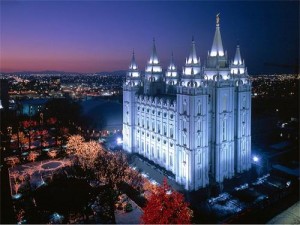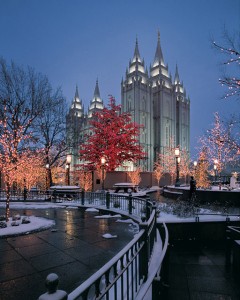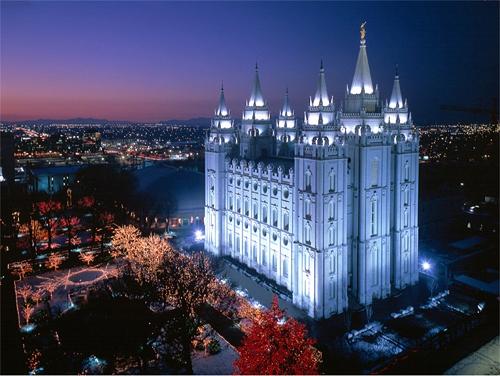 Those not of the Mormon faith (officially known as The Church of Jesus Christ of Latter-day Saints) may very well feel stymied by the fact that Mormons will not share in detail what goes on inside the temple. Regarding the confidential nature of temple ordinances, Boyd K. Packer wrote the following:
Those not of the Mormon faith (officially known as The Church of Jesus Christ of Latter-day Saints) may very well feel stymied by the fact that Mormons will not share in detail what goes on inside the temple. Regarding the confidential nature of temple ordinances, Boyd K. Packer wrote the following:
“A careful reading of the scriptures reveals that the Lord did not tell all things to all people. There were some qualifications set that were prerequisite to receiving sacred information. Temple ceremonies fall within this category.
“We do not discuss the temple ordinances outside the temples. It was never intended that knowledge of these temple ceremonies would be limited to a select few who would be obliged to ensure that others never learn of them. It is quite the opposite, in fact. With great effort we urge every soul to qualify and prepare of the temple experience” (The Holy Temple, booklet adaptation [1982], 2).
By way of comparison, I’d like to share a personal experience.
As a college student I had a summer job working at a nationally run research lab. My second summer at the lab I was granted a heightened security clearance, given a new badge, and trained on complicated procedures for closing specialized locking drawers and safes. I was excited about the new distinction and advertised to all my co-workers that I was now available to “work classified,” meaning I could now work on projects requiring this higher security clearance. As it turns out, most of my days working classified that summer were spent proofreading page after dreary page of safety documentation. After a few days at my new post, a co-worker who’d worked classified many years must have read my face because he jokingly commented, “You never knew the government’s secrets were so boring.”
It is easy to fantasize and perhaps sensationalize what goes on behind secured doors. In the case of my summer job, the classified work taking place was certainly important, but it lacked the prestige, romance, or drama that I looked for as a twenty-year-old. Entering the temple for the first time was, in many ways, a similar experience. It felt wonderful to be there, but for the most part the temple wasn’t anything shockingly new or different from what I’d learned in church all my life. It was like one step up in security clearance. I had reached a point in my life when I could accept more responsibility and was eager to do so, but the religious work that took place in the temple, important though it is, felt like a familiar extension to that which I’d already done in my life to that point. And while I’ve come to appreciate the temple more and more with time, at times it still  proves to be less than earth shattering when I fail to have “ears to hear” (see Matthew 13:9).
proves to be less than earth shattering when I fail to have “ears to hear” (see Matthew 13:9).
Boyd K. Packer continues:
“The ordinances and ceremonies of the temple are simple. They are beautiful. They are sacred. They are kept confidential lest they be given to those who are unprepared. Curiosity is not a preparation. Deep interest itself is not a preparation. Preparation for the ordinances includes preliminary steps: faith, repentance, baptism, confirmation, worthiness, a maturity and dignity worthy of one who comes invited as a guest into the house of the Lord.”
The temple is a place for members to further commit themselves to carrying out the work of God. It is worth every sacrifice to prepare oneself to enter. While it is true that those who take part in the temple agree not to divulge what takes place inside, those who have yet to attend may be assured, it isn’t to prevent hoards of twenty-something’s from lining up to be in on the excitement.


